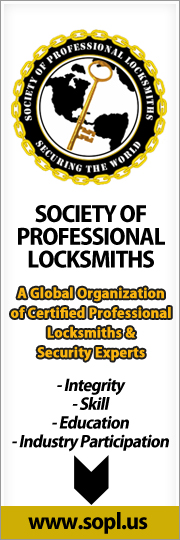|
By Barry Campbell, SOPL Managing Director "People of the same trade seldom meet together, even for merriment and diversion, but the conversation ends in a conspiracy against the public, or in some contrivance to raise prices. It is impossible indeed to prevent such meetings, by any law which either could be executed, or would be consistent with liberty and justice. But though the law cannot hinder people of the same trade from sometimes assembling together, it ought to do nothing to facilitate such assemblies; much less to render them necessary." Adam Smith, The Wealth of Nations: An Inquiry into the Nature & Causes of the Wealth of Nations In a nutshell: State licensing boards are under fire from the Federal Trade Commission for restricting competition, raising consumer prices, violating antitrust laws, and reducing customer choices. All arguments about the effectiveness of licensing aside, are the licensing boards operating legally themselves? Perhaps not, according to the Federal Trade Commission (FTC). The problem resides in the fact that they are generally composed of practicing members of the regulated industry, which begs the question of whether they are in violation of antitrust laws. The motives for supporting licensing are especially suspect when the support comes from the industry itself. Do the licensing boards operate to protect the public or themselves? This is not an issue of locksmith licensing in particular, but licensing in general, though the implications apply to our trade as much as any other. A recent, applicable case began in North Carolina in 2010. An FTC complaint alleged that, "[d]entists in North Carolina, acting through the instrument of the North Carolina Board of Dental Examiners ('Dental Board'), are colluding to exclude non-dentists from competing with dentists in the provision of teeth whitening services," the FTC complaint said. "The actions of the Dental Board prevent and deter non-dentists from providing or expanding teeth whitening services, increase prices and reduce consumer choice without any legitimate justification or defense, including the 'state action' defense." (1) Effectively, this is the same as a locksmith licensing board attempting to stop non-locksmiths from performing vehicle unlocks, rekeying locks, or any of a number of other services without first obtaining a locksmith license. Further, “[t]he complaint says teeth-whitening services are offered by dentists and non-dentists in North Carolina and that dentist members of the board "can and do control the operation of the dental board" and have financial interest in board decisions. The dental board consists of six licensed dentists, one licensed hygienist and one consumer member who is neither a dentist or a hygienist.” (1) The heart of the FTC complaint is the rather obvious conflict of interest in having industry members regulate the industry. Their pecuniary interest can easily outweigh their interest in the public good. Licensing self-interest will easily impede the actions of an otherwise free market. Healthy competition, which is in the best interests of all, is subjugated to the will of the few. This year, the 4th Circuit Court agreed with the FTC. “We are pleased that the Fourth Circuit agreed that a state regulatory board dominated by self-interested private actors cannot shield its anticompetitive conduct from antitrust review using the state action doctrine,” FTC chairwoman Edith Ramirez said in a statement. “This decision…recognizes that exemptions to the antitrust laws are to be applied narrowly and that consumers are best off when there is vigorous competition.” “The Fourth Circuit panel agreed. “At the end of the day, this case is about a state board run by private actors in the marketplace taking action outside of the procedures mandated by state law to expel a competitor from the market,” Shedd wrote.” (2) The ruling is not a fluke. ”The Federal Trade Commission (FTC or Commission) has a long history of challenging state licensing boards’ actions that restrict competition.” (3) The findings are very similar to a case in Indiana 27 years ago: “Under our precedents, a restraint may be adJudged unreasonable either because it fits within a class of restraints that has been held to be " per se" unreasonable, or because it violates what has come to be known as the "Rule of Reason," under which the "test of legality is whether the restraint imposed is such as merely regulates and perhaps thereby promotes competition or whether it is such as may suppress or even destroy competition." Chicago Board of Trade v. United States, 246 U.S., at 238. Note in the case cited above, “[t]hat a particular practice may be unlawful is not, in itself, a sufficient justification for collusion among competitors to prevent it.” This speaks directly to those who support licensing of the locksmith trade as a means of battling phony locksmiths. Licensing supporters tend to make exaggerated claims as to the power of licensing boards. The boards can only do what the law allows them to do, and they can only enforce their rules upon those who are licensed. Board motives are not all that may be questioned here. Licensing boards of all types may be reevaluated. “Joyce Osborn, president and founder of the Alabama-based Council for Cosmetic Teeth Whitening, a trade association, told Carolina Journal that the issue is not about public health or safety, or even a concern that non-dentists are motivated only by financial self-interest, as the N.C. dental board asserts. Osborn says dentists want to maintain a lucrative monopoly and protect their own revenues from lower-cost competitors. “It contends that the practice of allowing professions and occupations to be regulated solely by state occupational licensing boards comprised of a majority of the licensees of the profession is anti-competitive and exclusionary because those members have a financial conflict of interest. When members of such a licensing board enforce the state’s Dental Practice Act, they are engaging in a conspiracy that violates federal antitrust laws. One response to the original FTC complaint even “identifies the existence of at least 20 other states with similar legislation.”(6) Locksmith licensing boards are probably among those 2000 licensing boards in 20 states. Perhaps an explanation of the FTC's role in all of this is in order. The FTC is often thought of as a consumer protection agency, but that is not how it got its start. “The FTC was created in 1914 with a principle purpose of preventing unfair methods of competition in commerce. Over the years, the US Congress has enacted laws to further expand the authority of the FTC and clarify its authority to police anticompetitive practices. This federal agency’s work is performed by the Bureaus of Consumer Protection, Competition, and Economics. Specifically, the FTC is authorized to investigate and prosecute businesses and others alleged to have violated the FTC Act, generally related to anticompetitive activities. Enforcement proceedings are adjudicated through an administrative process before an administrative law judge in a “trial-type proceeding” conducted under the FTC Rules of Practice.” (6) In this particular case, “[t]he complaint concludes that the conspiracy, acts, and practices of the Board constitute anticompetitive and unfair methods of competition in or affecting commerce in violation of section 5 of the FTC Act.” (6) Section 5 of the Federal Trade Commission Act reads: "Whenever the Commission shall have reason to believe that any such person, partnership, or corporation has been or is using any unfair method of competition or unfair or deceptive act or practice in or affecting commerce, and if it shall appear to the Commission that a proceeding by it in respect thereof would be to the interest of the public, it shall issue and serve upon such person, partnership, or corporation a complaint stating its charges in that respect and containing a notice of a hearing upon a day and at a place therein fixed at least thirty days after the service of said complaint. In the North Carolina case, "The Dental Board consists of six licensed dentists, one licensed hygienist, and one “consumer member,” who is neither a dentist nor a hygienist. Each dentist member is elected to this position by the licensed dentists of North Carolina, and serves a three-year term. Collectively, the six dentist members can and do control the operation of the Dental Board. Each dentist member is financially interested in decisions reached by the Dental Board because, while serving on the Dental Board, each dentist member continues to engage in the for-profit business of providing dental services." More, the FTC points out: "THE DENTAL BOARD IS ACTING TO SUPPRESS COMPETITION" "VIOLATIONS ALLEGED - 26. The combination, conspiracy, acts and practices described above, constitute anticompetitive and unfair methods of competition in or affecting commerce in violation of Section 5 of the Federal Trade Commission Act, as amended, 15 U.S.C. § 45. Such combination, conspiracy, acts and practices, or the effects thereof, are continuing and will continue or recur in the absence of appropriate relief." (7) “The Commission explained that, because the Board is controlled by practicing dentists, the Board’s challenged conduct must be “actively supervised” by the State for it to claim state action exemption from the antitrust laws. “The FTC charged that the North Carolina Board of Dental Examiners (the “Dental Board”) has impermissibly ordered nondentists to stop providing teeth-whitening services, which has made it harder to obtain these services and more expensive for North Carolina consumers.” (8) “The FTC concluded that, for antitrust purposes, the Board was actually a private party, not a state agency, and, therefore, had to show both that it acted pursuant to a clearly articulated and affirmatively expressed state policy and that its behavior was actively supervised by the State itself. Id. (citing California Retail Liquor Dealers Ass’n v. Midcal Aluminum, Inc., 445 U.S. 97, 105 (1980)). In a similar situation in Alabama, “[t]his issue is itself part a much broader debate over the proper limits of occupational licensing and the amount of leeway that professional boards should be given to set up barriers of entry. “The Institute for Justice has long been involved in campaigns against what it regards as overzealous licensing requirements, arguing that in areas like interior design or hair braiding, they are simply anticompetition measures. “Ms. Wilson and her lawyers say the board is not simply carrying out law but helping make it, too.” (11) The bottom line is that licensing works, if you are honest about what licensing is meant to achieve. It has nothing to do with improving services or protecting the consumers – quite the opposite, in fact. Marginal companies may gripe about the fees and associated costs of licensing, but to the older, more established firms, it is cheap insurance against competition. The FTC is now challenging licensing boards that engage in such monopolistic practices. Optimal consumer choice and cost depend, not on licensing businesses, but on the free competition of the businesses. Successful businesses will be such as the result of offering high quality services, not as a result of political protection. “The interest of [businessmen] is always in some respects different from, and even opposite to, that of the public ... The proposal of any new law or regulation of commerce which comes from this order ... ought never to be adopted, till after having been long and carefully examined ... with the most suspicious attention. It comes from an order of men ... who have generally an interest to deceive and even oppress the public”  Barry Campbell, owner of Altic Lock Service and Managing Director of the Society of Professional Locksmiths. Barry is a graduate of Valparaiso University with a degree in Criminal Justice. He has worked in private security, investigations, and loss prevention. He is the author of A Homeowner's Guide to Residential Door Security. barry also is a former Professional member of the International Conference of Building Officials and a current Building Safety Professional member of the International Code Council. Sources:
(1) FTC issues complaint against North Carolina dental board, ADA (American Dental Association) News 6/18/2010 http://www.ada.org/news/4298.aspx (2) FTC Shines in Teeth Whitening Case in Appeals Court 6/4/2013 The BLT: The Blog of Legal Times http://legaltimes.typepad.com/blt/2013/06/ftc-shines-in-teeth-whitening-case-in-appeals-court.html (3) Health Care Antitrust Alert FTC Does Not Embrace Dentist Board’s Anticompetitive Activity 12/13/2011 http://www.mintz.com/newsletter/2011/Advisories/1534-1211-NAT-AFR/web.htm (4)T.C. v. Indiana Federation of Dentists, 476 U.S. 447 (1986) 06/02/86 FEDERAL TRADE COMMISSION v. INDIANA http://biotech.law.lsu.edu/cases/antitrust/FTC_v_Indiana_Federation_of_Dentists.htm (5) Feds Rule State Dental Board Illegally Stifled Competition 1/4/12 http://www.carolinajournal.com/exclusives/display_exclusive.html?id=8614 (6) NABP Legal Briefs: FTC: Facinorous Teeth Case August 4, 2011 National Association of Boards of Pharmacy http://www.nabp.net/news/nabp-legal-briefs-ftc-facinorous-teeth-case (7) US Federal Trade Commission Drills North Carolina Dental Board... Bolen Report 6/21/10 http://www.bolenreport.com/feature_articles/feature_article096.htm (8) NC Dental Board Outlaws Teeth-whitening, FTC Says No Way June 21,2010 http://www.skininc.com/spabusiness/regulations/96792599.html (9) Fourth Circuit Holds State Agencies Operated by Market Participants Are Private Actors for State Action Purposes June 11, 2013 http://www.mintz.com/newsletter/2013/Advisories/3132-0613-NAT-AFR/index.html (10) FTC Wins Another "State Action" Case as 4th Circuit Finds State Board Can be a "Private Actor" June 3,2013 http://www.schiffhardin.com/File%20Library/Publications%20%28File%20Based%29/HTML/antitrust_060313index2.html (11) A Clash Over Who Is Allowed to Give You a Brighter Smile May 25, 2013 http://www.nytimes.com/2013/05/26/us/clash-over-who-is-allowed-to-whiten-your-smile.html?_r=1& Share your comments about your experience with licensing boards below. Like the article? Give it a Tweet or Facebook Like and more!
17 Comments
By writing this article, are you attempting to discredit licensing boards of not just our trade but all other professional regulation boards?
Reply
Tom, reporting the facts is one thing. Giving an opinion on a better solution is something else. The FTC, as you point out, was originally convened to screen unfair competitive practises. Licensing boards created by industry insiders aimed at expanding personal profits, is deplorable. Medical boards were created to require educated medical students to have a minimum criteria to be able to practise legitimately and lawfully. Government appointed industry leaders are sought to provide, interpret and produce the necessary criteria for testing, but enforcement is publicly controlled.
Reply
Tom, reporting the facts is one thing. Giving an opinion on a better solution is something else. The FTC, as you point out, was originally convened to screen unfair competitive practises. Licensing boards created by industry insiders aimed at expanding personal profits, is deplorable. Medical boards were created to require educated medical students to have a minimum criteria to be able to practise legitimately and lawfully. Government appointed industry leaders are sought to provide, interpret and produce the necessary criteria for testing, but enforcement is publicly controlled.
Reply
Glenn Younger
8/12/2013 04:30:56
Good article.
Reply
8/12/2013 16:23:20
Thank you, Mr Younger, but I would suggest that the first thing California should do is stop licensing known scammers (http://www.sopl.us/4/post/2013/06/definitive-proof-that-locksmith-licensing-is-a-con-job-what-your-not-being-told.html).
Reply
glenn younger
8/13/2013 15:16:42
The answer to your question is in your reply. It is no restraint of trade at all. It is so loose that even Run Local can get in. So it is not restraining anyone except those with a felony record. Run local president and VP do not have felony records. So even they get in.
glenn younger
8/13/2013 15:16:53
The answer to your question is in your reply. It is no restraint of trade at all. It is so loose that even Run Local can get in. So it is not restraining anyone except those with a felony record. Run local president and VP do not have felony records. So even they get in.
glenn younger
8/13/2013 15:17:33
The answer to your question is in your reply. It is no restraint of trade at all. It is so loose that even Run Local can get in. So it is not restraining anyone except those with a felony record. Run local president and VP do not have felony records. So even they get in.
glenn younger
8/13/2013 15:17:57
The answer to your question is in your reply. It is no restraint of trade at all. It is so loose that even Run Local can get in. So it is not restraining anyone except those with a felony record. Run local president and VP do not have felony records. So even they get in. 8/12/2013 16:54:32
To add insult to injury - whether this ruling affects the NC locksmith licensing board or not, your license fees just tripled. And don't be late, the late fee doubled! (http://www.ncga.state.nc.us/Sessions/2013/Bills/Senate/PDF/S18v6.pdf)
Reply
8/12/2013 21:11:07
Great Article. It would be nice if the FTC had any clout but it appears government been going the other direction with more mandates, rules and regulations. After all it appears that a large portion politicians think we the voters are stupid and inept and they want to help us out by what they think is right. Remember the meaning of politics is that poli means "MANY" and tics " Are BLOOD SUCKING INSECTS"
Reply
8/13/2013 17:22:25
Mr. Younger,
Reply
glenn younger
8/14/2013 04:07:55
Barry, both my comments are accurate. I am a free market believer, and a little restraint might be a goo thing. A total free market would be the wild, wild west. And although that sounds great to some I can say that it's not as much fun as it sounds.
Reply
8/14/2013 19:11:11
Typical fear-mongering rhetoric, Glenn. I'd like to believe you are above that. There is a world of difference between licensing and rules regarding business conduct. The essence of licensing is control over who may enter a certain field. Restraint of trade is the very nature of licensing because it either permits or denies the applicant the ability to even enter a trade.
Reply
glenn younger
8/15/2013 06:53:09
Sounds like we agree. I'm just saying that licensing is not always restraint of trade. It seems like the word 'license' is what gets peoples back up.
Reply
Your comment will be posted after it is approved.
Leave a Reply. |
Categories
All
|
Services |
Company |
|



 RSS Feed
RSS Feed
